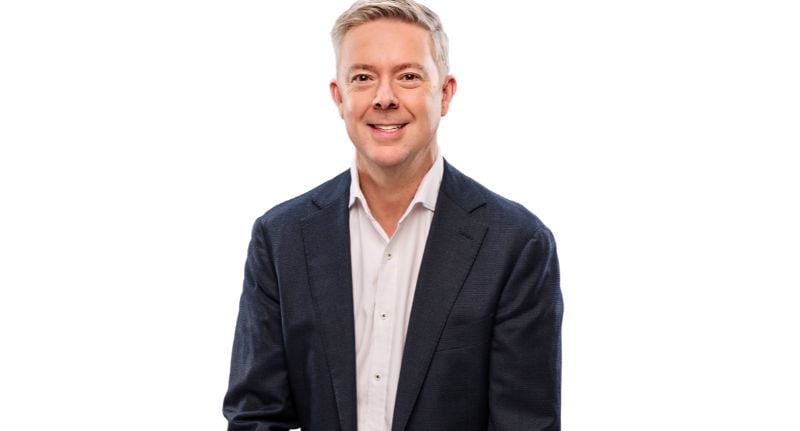Nine Radio’s Head of Content Greg Byrnes says there’s more behind 2GB and 3AW’s latest ratings surge than a strong football finals season – although he’s the first to admit it didn’t hurt.
In the latest GfK radio ratings, Nine Radio’s 2GB and 3AW continued to dominate their respective markets, cementing their positions as the country’s leading talk stations.
In Sydney, 2GB surged from 11.4 to 14.2 overall to reclaim its place at the top of the market. Its breakfast program also strengthened its lead, climbing from 14.2 to 16.8, extending its dominance over the FM competition.
In Melbourne, 3AW recorded similar success, rising from 13.5 to 14.6 overall to maintain its number-one position. At breakfast, the station delivered its best result of the year, increasing from 19.0 to 20.3.
Byrnes acknowledged that football played a role in the network’s strong performance, but said it was just one part of a bigger picture.
“Football has played a big role this survey period. The finals series was incredibly exciting across both the NRL and AFL, and the strength of our football coverage has really shone through,” he told Mediaweek.
“Great games on the field have also translated into great listening results.”
He also pointed to Nine Radio’s growing focus on technology and listener experience, noting the success of a new feature that syncs live radio commentary with the TV broadcast.
“We also rolled out our new in-play audio sync feature on the app, which lets you watch the game and listen to our live commentary at the same time,” Byrnes said.
“I’m biased, but there’s nothing quite like live radio commentary – and the feedback has been overwhelming. The feature uses a simple slider so you can sync perfectly with your TV or stream.
“There’s a fair bit of tech behind it, but it rolled out smoothly during the finals, and I think it’s helped strengthen our football coverage nationwide,” Byrnes said.
2GB and 3AW continue to dominate
Byrnes said that while sport has helped, the real story is one of consistency and connection.
“We know how ratings can ebb and flow, but our breakfast programs in Sydney and Melbourne have dominated all year – and that dominance is set to continue through the end of the year,” he said.
“We’ve got the number one breakfast shows in both cities, number one in mornings, and today’s result for Mark Levy is particularly impressive – up 14.9 from 11.5 – a big increase that makes him the clear number one.”
He described the network’s success as the result of simple but powerful fundamentals.
“Consistency, passion, localism, engagement, entertainment, companionship, and trust – that’s what it all comes down to,” he said.
That approach, he added, has helped 2GB maintain strong growth across multiple shifts.
“Across the board, 2GB’s had a really strong day. Every show is either number one or has seen a big lift – and in many cases, both,” he said. “Jacqui (Jacqui Felgate) in Melbourne also deserves a mention for taking out number one in Drive.”
Meanwhile, Brynes has nothing but praise for the Breakfast team at 3AW who “delivered its best result of the year – 21.6 share. It’s extraordinary.”
He noted how the program has not only held its long-time dominance but pushed it even further. “They’ve managed to go from the highest of highs to even higher, especially considering where they were earlier in the year. From one of the lowest points to now smashing it – that’s an incredible turnaround.”
Mark’s momentum
A major highlight for the network was Mark Levy’s rise on 2GB Breakfast, which recorded the station’s best result of the year at 21.6.
“There’s been a lot of attention around Mark, and today’s results speak for themselves – he’s had a significant increase and is now the clear number one. It’s really pleasing and really reassuring to see,” Byrnes said.
He added that despite Levy’s own hints about future ambitions, he remains firmly focused on 2GB Breakfast.
“He’s spoken on air about always thinking ahead and considering what’s next, but for now and the foreseeable future, he’s fully committed to 2GB Breakfast – and we’re very lucky to have him in that role.”
Listeners are staying longer
Byrnes said another standout trend has been the growth in time spent listening (TSL) across the network, up three hours on last year – the strongest figure of 2024.
“We’ve seen a big increase in TSL – up three hours on last year – which is the best result we’ve had all year,” he said.
For Byrnes, the rise can be explained by the network’s renewed focus on content structure and engagement.
“When we see TSL rise across most of the business, particularly at 2GB, it’s a great sign that the content’s connecting,” he said.
“What we tell our content teams is that you can’t control how many people tune in, but you can control how long they stay.
“That comes down to structure teasing into breaks and out of them, planning interviews and content, treating the show as a full three-hour experience rather than half-hour chunks,” he said.
For Byrnes, the rise in listening time confirms the strategy is working.
Reflecting on the network’s success, Byrnes said the key ingredients haven’t changed much – but the execution has evolved.
